
Just a few months after Agios Pharmaceuticals highlighted clear indications of success for its early-stage drug AG-221 for various blood cancers, the biotech has followed up with a bonus round of promising results at the annual scientific meeting of the American Society of Hematology. Investigators noted that a growing number of patients with IDH2-mutant positive malignancies have achieved a complete response, with the durability of the response extending out now to 8 months in some cases. And the clinical success is opening the door to a registration study now planned to launch in 2015.
Read more – FierceBiotech
December 7, 2014 | Greg

In a closely watched case, a federal court jury decided that a so-called pay-to-delay deal between AstraZeneca and Ranbaxy Laboratories involving the launch of a generic version of the Nexium heartburn pill was not anticompetitive.
This was the first time that a lawsuit over such deals went to trial since the U.S. Supreme Court ruled last year that drug makers can face greater antitrust scrutiny over pay-to-delay deals. In these arrangements, a brand-name drug maker reaches a settlement with a generic rival in exchange for ending patent litigation and an agreement allowing a copycat medicine to be launched at a future date.
Read more – Pharmalot – WSJ
December 7, 2014 | Greg
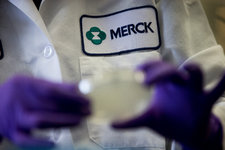
Merck & Company, the big drug maker, is in talks to acquire the biopharmaceuticals company Cubist for more than $7 billion, according to people briefed on the matter.
The deal, if announced, would represent another multibillion-dollar health care transaction in a banner year for mergers and acquisitions in the industry.
Read more – NYTimes.com
December 5, 2014 | Greg
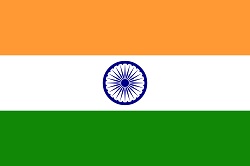
India should take a cue from the biotech hotbeds of the U.S. and U.K., a local trade groups says, investing in infrastructure to help foster startups and grow innovation clusters of its own.
According to India’s Association of Biotechnology Led Enterprises, the government needs to pony up about $4 billion a year over the next 5 years to lay the groundwork for a biotech boom, which the group believes could bring in $100 billion in revenue by 2025, according to Business Standard.
Read more – FierceBiotech
December 5, 2014 | Greg
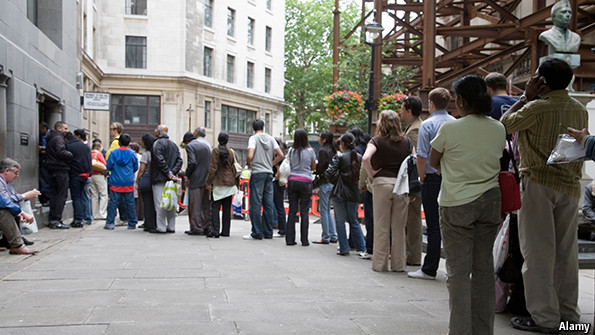
RED TAPE is the bane of frequent business travellers. Many places in the world require arduous and expensive visa applications for even the most routine travel. I have two passports just so I can juggle concurrent applications when necessary. But the best policy, for business travellers and tourists alike, is a less-restrictive visa regime. The Schengen Area has proven a huge boon to European travellers…
Read more – The Economist
December 5, 2014 | Greg
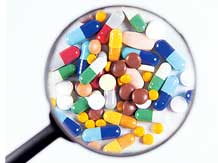
Even as major Indian drug companies continue to make news for impurities in the medicines they make and faulty – or if the USFDA is to be believed, falsified – data that many generate after testing of samples show quality problem, it seems strange that domestic authorities are silent onlookers. The Indian drug industry is estimated at around Rs 80,000 crore, and is a powerhouse of generic medicines (sometimes referred to as copycat medicines).
Read more – Business Standard
December 5, 2014 | Greg
India’s leading pharmaceutical research company GVK Bio allegedly manipulated the results of clinical trials of generic drugs it had carried out on behalf of several European manufacturers for many years, media reports have said.
Read more – The Economic Times
December 5, 2014 | Greg

Mylan is the world’s second-largest generic drug player in terms of revenue. However, the behemoth is yet to make inroads into the Indian market. The company entered India in 2007 with its buy of Matrix Laboratories. Since then, it has espoused the inorganic growth theory. Mylan’s India arm now constitutes nearly 50% of its global employee strength. President Rajiv Malik, who oversees Mylan’s R&D activity as well as regulatory affairs, manufacturing and quality, spoke to Pallavi Ail on why the company is cautious while negotiating Indian pharma waters. Excerpts…
Read more – The Financial Express
December 4, 2014 | Greg
Telangana proposes to set up India’s largest integrated pharmaceutical city spread over 11,000 acres near Hyderabad, complete with affluent treatment plants and a township for employees, in a bid to attract investment of Rs 30,000 crore in phases.
Read more – The Economic Times
December 4, 2014 | Greg

Following years after actions by the U.S., Germany and EU regulators have banned Ranbaxy Laboratories from exporting the injectable versions of its cephalosporin antibiotics following an inspection earlier this year of the company’s plant in central India.
Read more – FiercePharma Manufacturing
December 4, 2014 | Greg
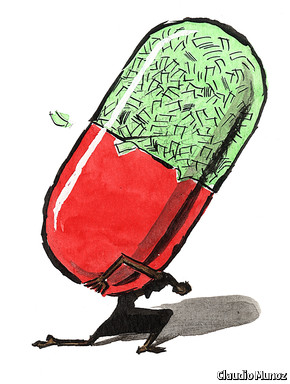
In the pharmaceuticals business there are few issues more loaded than the cost of developing a new drug. For a number of years estimates from industry groups on either side of the Atlantic have put it at $1.2 billion-1.8 billion. A new study by the Centre for the Study of Drug Development at Tufts University in Massachusetts reckons the average cost for drugs developed between 1995 and 2007 was $2.6 billion. Among those rejecting this new figure as highly misleading are Médecins Sans Frontières, a charity, and the Union for Affordable Cancer Treatment, a patients’ group.
Read more – The Economist
December 4, 2014 | Greg
GlaxoSmithKline is significantly reducing the size of its R&D team in the US, though about 450 of those employees who will be laid off in the Research Triangle Park (RTP), North Carolina area will find new jobs with CRO Parexel.
Read more – Outsourcing-Pharma
December 4, 2014 | Greg
India needs to conduct more clinical trials for discovering new drugs for chronic diseases. With large number of block buster drugs coming off patent by 2015, the Indian pharmaceutical industry should get ready for not just making generic drugs, but should also increase the number of clinical trials for discovering new drugs for treating chronic diseases, opined experts at Krishna institute of Medical sciences (KIMS).
Read more – PharmaBiz
December 4, 2014 | Greg
The US and the Big Pharma have long flayed India’s patenting regime — saying it is not liberal enough to reward innovators — but the data on grant of these exclusive rights by Indian authorities over the past decade hardly bear this out.
Read more – The Financial Express
December 4, 2014 | Greg

SGS has doubled testing capacity at its Mumbai facility, explaining that Indian API makers’ failure to invest in quality has been good for business.
Read more – Outsourcing-Pharma
December 4, 2014 | Greg









